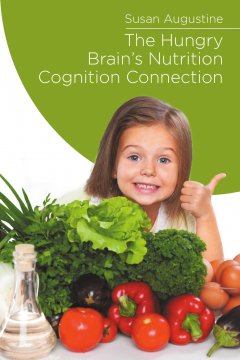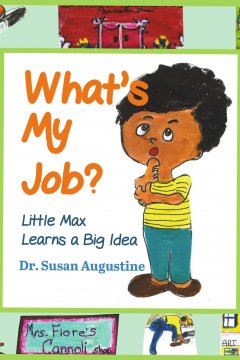-

The Hungry Brain’s Nutrition Cognition Connection
The brain gets fed first! That is the important idea for the book, The Hungry Brain’s Nutrition
Cognition Connection that relates to: mood, mind, memory and behavior. After several
years of teaching children with attention deficit disorder (ADD and ADHD), learning
disabilities, and severe behavior problems Dr. Augustine decided to look to the brain and to
biochemistry.
The theme throughout the book is biochemical individuality and feeding the very hungry
brain. Many students and adults suffer from malnutrition of the brain and other specific
biochemical disorders such as pyrrole disorder and metal metabolism disorder.
Making “smart” choices for the hungry brain is front and center of this cutting edge book.
As the educational community faces the challenges of childhood obesity and food allergies,
people are eager to learn how to guide their students and their own children in the care of
the body and especially feeding their brains. Dr. Augustine provides a simplification of the
food groups: animal foods; plant food and junk foods. She tells why breakfast is still the
most important meal of the day and even more so if a child has problems with learning or
behavior. Highlighted as well is the importance of daily movement, producing nerve growth
factor (NGF). Exercise is a family affair! Additionally, there are brain joggers for parents and
teachers as practical strategies for teaching nutrition as part and parcel of a lifelong learning
strategy and healthful daily habits.
Teachers will appreciate the mini lessons for easy integration into their curricula.About the Author
“Dr. Susan Augustine has been in the field of education her entire adult life, teaching across
the spectrum of pre-kindergarten through graduate students. Establishing her career as a
special education teacher she soon realized how nutrition and biochemistry are involved
in processes of mood, mind, memory and behavior. Working with children and adults
with depression, learning disorders, attention deficit disorder, anxiety, and other health
impairments she turned her attention to the brain and specifically what we feed our brains.
Dr. Augustine conveys a nutrition and health perspective into all of her work in life and has
done so in the United States and in Singapore.
The author of: Attention Deficit Disorders; What We Know, What it Means, and What We
Can Do, The Hungry Brain’s Nutrition/Cognition Connection; Tools for the Cooperative
Classroom, and Thinking About Nutrition the New Nutrition Education. Dr. Augustine’s
classes have assisted people in moving toward a more healthful way of thinking and living.
Bringing the viewpoint of mental and physical health, Susan is also a nutrition counselor,
public speaker, trainer of teachers, and has appeared as the nutrition expert on television
programs in Chicago: Health Town and cable televisions, Food for Life.”$2.99–$27.59


